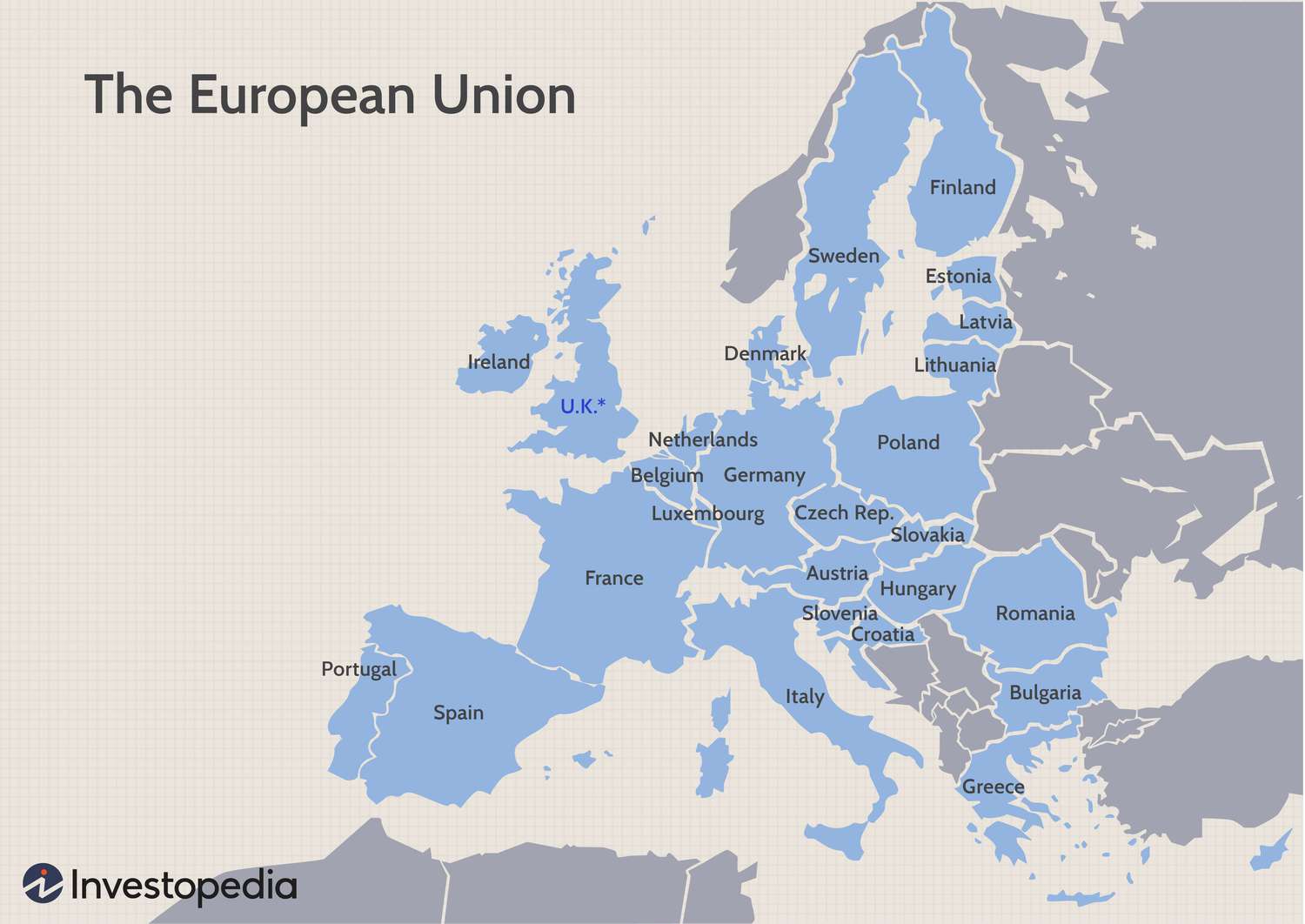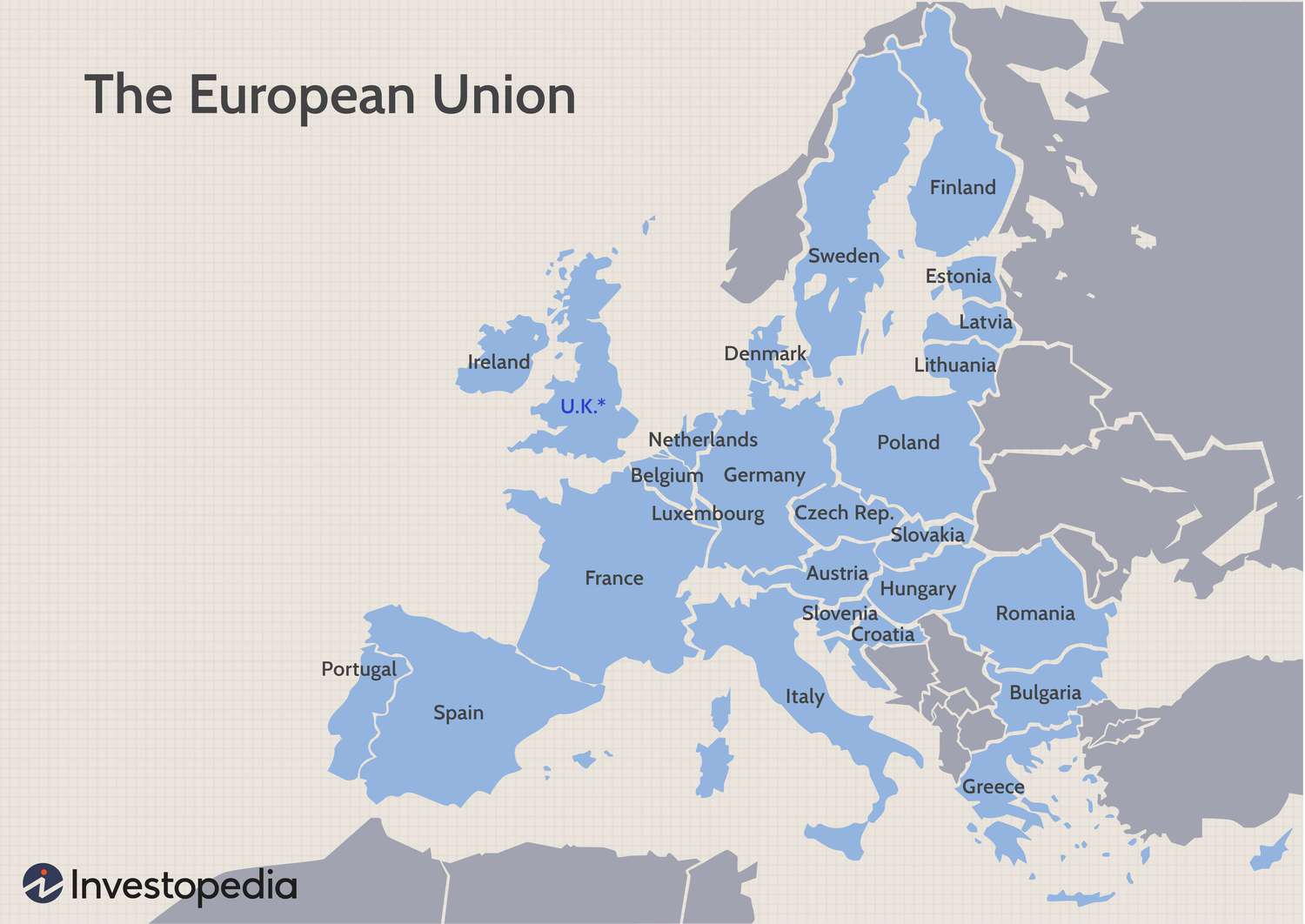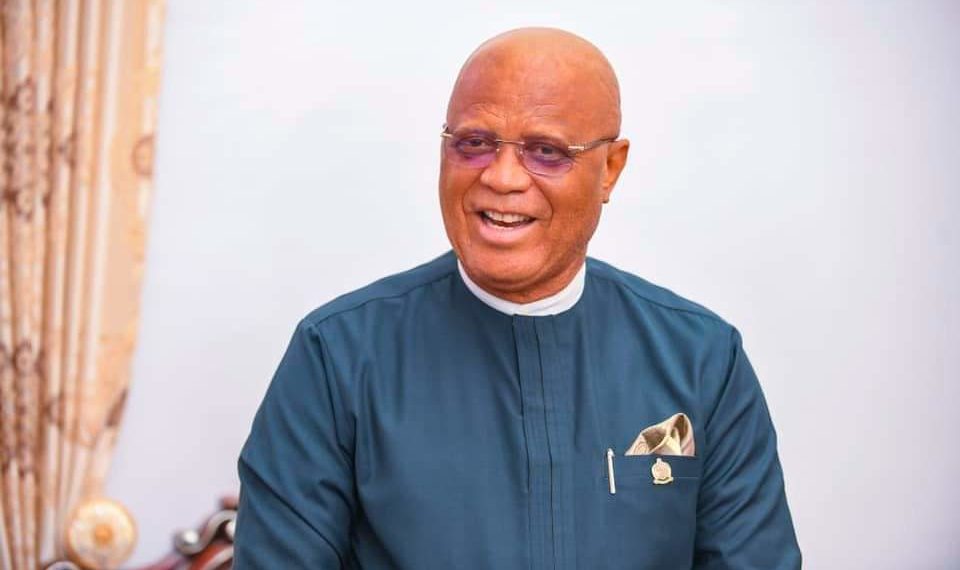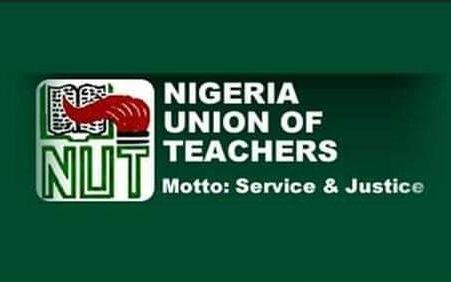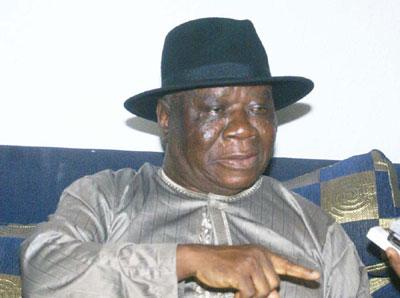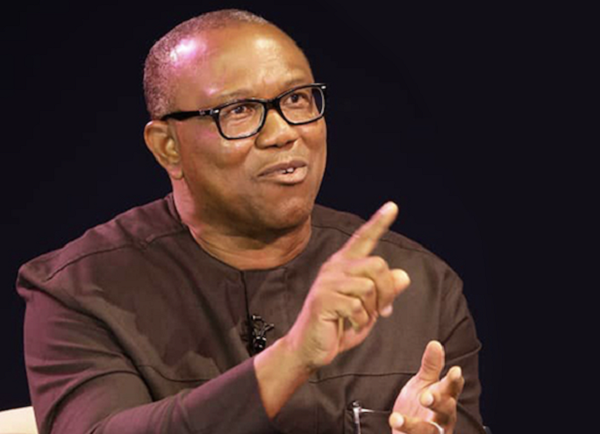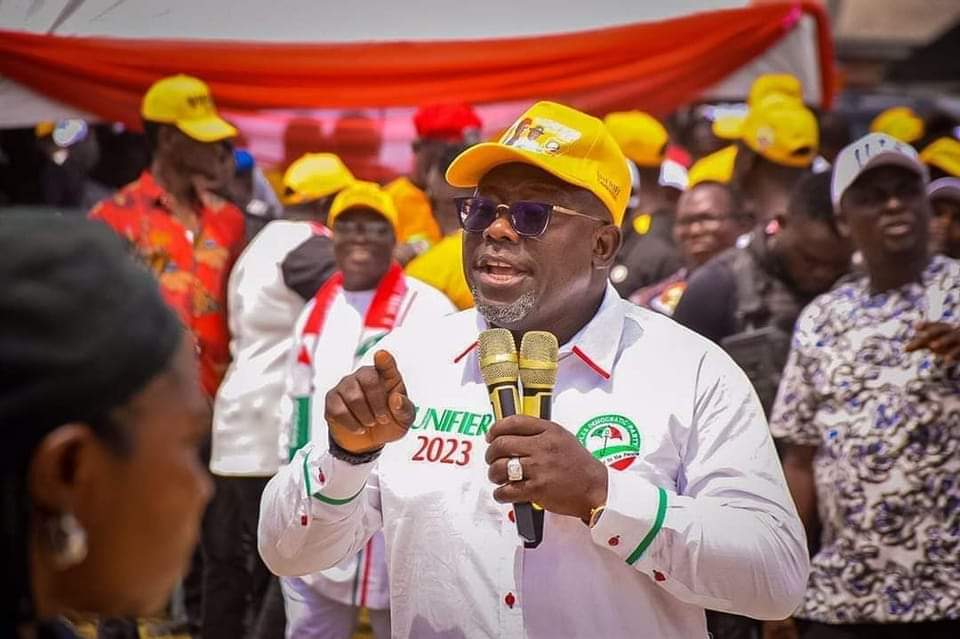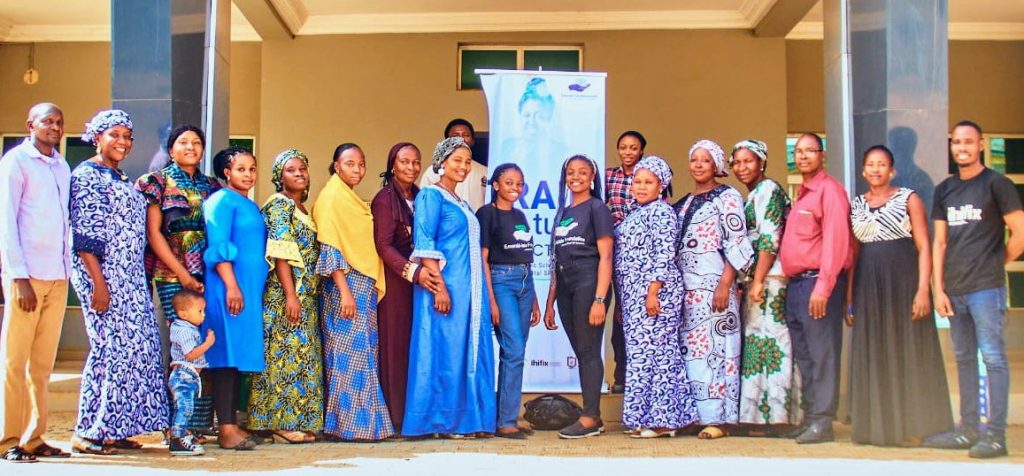Elder statesman and Ijaw leader, Chief Edwin Clark has dedicated Chapter 5 of his Author biography, ‘Brutally Frank‘ to Nigerian teachers, appealing to the Federal and State Governments as well as school proprietors, to prioritize the welfare of teachers in their employment in order to revive the educational sector.
He wrote: “I have decided to dedicate Chapter 5 of my Auto-Biography to Nigerian teachers of all grades because they have not been fairly treated by their employers and society; having regard to the fact that good education is the key to the success of any country both developing and developed countries of the world.
“In practical terms, I have experienced the development of education particularly the Primary and Secondary School as a pupil and student and I was trained as a teacher at Government Teachers Training College, Abraka. At this juncture, I wish to state why I decided to train as a teacher instead of being a secondary school student at Government College Warri in 1947. The school authorities, supervised by late Chief S.U. Etuk of Akwa Ibom State said I was too old and that I should go to Government Teachers Training College Abraka but funny enough, the school authority headed by an expatriate by name Mr Soulby said I was too young so I became a pupil teacher in Native Authority School Okrika and that was the beginning of my teaching career. I have taught and I have been head master of Elementary School and The Western Nigeria newly introduced Modern School.
“I have also been Commissioner for Education Mid-West State from January 1968 to December 1971; hence I have decided to dedicate Chapter 5 Titled ‘THE BUREAUCRAT’ where I was involved in the development of education and my concern for better opportunities for teachers in my Auto-Biography titled “BRUTALLY FRANK” at page 73. I wholeheartedly congratulate the teacher’s participation on their day because the chapter dealt with my activities as a commissioner for education for Mid-West State and as first Pro-chancellor of the University of Benin, Benin-City and also first Pro-Chancellor and Chairman of the governing council of the Federal University of Technology Minna when the university started in Bosso Campus in 1982 in Minna”.
I reproduce hereunder an extract of chapter 5 of my Auto-Biography;
“MY APPOINTMENT AS COMMISSIONER FOR EDUCATION
In December 1967, I was at a reception party held for newly-appointed judges at River Valley Hotel in Warri when Dr. F.O. Esiri drew me aside to inform me that he had heard my name being announced over the radio before he came to the party as one of the newly-appointed commissioners in the Mid-West State by the Military Administrator of the state, Colonel Samuel Ogbemudia. This was later confirmed by some friends both in Warri and Benin-City before I was invited to Benin to take up the appointment. I was sworn in with others and assigned the portfolio for Education.
Before the official inauguration, I had met the Governor one evening where he said he wanted to inform me of
the discussion he had with some people about the appointment of commissioners, having regards to the relationship he had with me during Col. Ejoor’s era. He said he had mentioned my name and that they advised him strongly against appointing me. He said when he asked for reasons, he was told that I was very controversial and stubborn; and as a result, he would not be able to handle me and that I would not be loyal to his government. Surprisingly, he said that advice strengthened his resolve to appoint me because he did not want a commissioner that would be afraid to speak up or criticise him at meetings.
I thanked him for the confidence he had in me and assured him of my loyalty to his administration. I was informed that as Commissioner for Education, I would be given free hand to run my ministry. My office was at Chief Omo Osagie’s Former residence on James Watts Road, Benin City, very close to the headquarters of Amel Transaport which Col. Ejoor’s government had confiscated from him following the investigation carried out by his government.
MY CONCERN FOR THE GIRL CHILD EDUCATION
My Permanent Secretary was Mr. S.N. Enabhokara, a very seasoned educationist. One of the requests I made to the Governor was in the area of girl-child education in Western Ijaw Division which lacked educated people, particularly women. The government then approved that any girl-child from that area that gained admission to a tertiary institution should be given automatic scholarship. Many Ijaw girls benefited from the scholarship scheme, however, male scholarship was spread all over the state.
MAJOR OVERHAUL OF THE EDUCATION SECTOR AS COMMISSIONER FOR EDUCATION
Education was the focal point of Col. Ogbemudia’s administration. As Commissioner for Education, I made it a duty to pay surprise visits to both primary and secondary schools in the state and often held morning assembly with them. On such visits, I was accompanied by my Chief Inspector of Education and other senior education officers. This made teachers and pupils more dedicated and punctual in attendance, and discipline was the order of the day. I also saw it that both teachers and students were properly dressed. At times, I provided school uniforms for the less-privileged pupils, particularly in the primary schools.
EXAMINATION MALPRCTICE
Examination malpractice which was flourishing in many schools before I took over reduced to a minimum because of my frequent visit to schools. I enforced discipline and, in some cases, had to approve the expulsion of some students.
There was a Teacher’s Training College at Abudu with one Chief D.O. Orosanya as principal. I received a report that examination malpractice was being carried out in that school. I left Benin City early one morning accompanied by school inspectors to visit the college in Abudu. On arrival at 9:00a.m, students were taking exams. I went into a classroom and some female students were caught coping from prepared papers. One of the girls confessed that a teacher, Solomon Aguebo, was the brain behind these malpractices for which they paid money, but we later discovered that one of the young ladies was the lecturer’s friend who in turn later confessed. I gave a directive that he should be dismissed and removed from the Register of Teachers and the female student was expelled. I was completely disappointed and ashamed of the behaviour of this handsome teacher who was my classmate in Abraka Teacher Training College in 1950. He made every effort to see me due to our past relationship, but I believed the interest of the general society was paramount and took priority over personal interest. The news of this incident was published in the papers and broadcast over the radio. This created fear in schools and examination malpractice was eventually stamped out.
THE WELFARE OF TEACHERS
Whilst being very strict with teachers and disciplining them when nesecary, I also saw to their welfare. A situation where two graduates joined the system from one university; one with Second class Upper degree and the other with second class lower; the one with second class upper becomes an education of officer or teacher in a secondary school while the one with second class lower is employed as an administrative officer. The one who is employed to be an education officer would receive less pay, even though they have the same qualification. Whilst the administrative officer received a car, the education officer did not receive such benefit. I thought this was unjust and so I prepared a memo to the Governor to that effect, highlighting the disparity. I took my memo to the Executive Council and it was approved that the two types of graduates should be given equal treatment and facility to enhance their jobs, thereby attracting more graduates to the teaching profession.
THE ESTABLISHMENT OF A HEADMASTERS’ INSTITUTE
I also saw to it that the condition of service for teachers which was not good enough, particularly headmasters of schools, was improved upon. I discussed the issue with the Governor who though a military officer, was very committed to the advancement of education in the state and was always ready to lend his support.
During our discussion on this matter, we gave thought to how to raise salaries of headmasters whose bar was nationally fixed. In order to bypass the national scale, we decided to establish a Headmasters’ Institute in Benin to train headmasters who had served as Grade II teachers for at least 25 years, but had no opportunity to go beyond the national scale of salaries for teachers.
We contacted the University of Ibadan which agreed that the headmasters’ institute should be affiliated to the institute of Education at the University of Ibadan. They were then responsible for preparing the scheme of work, the subjects to be taught and at the end of one year, students would take an examination prepared and supervised by the Institute of Education, Ibadan. It became very popular and many headmasters gained access to this programme. At the end of the one-year training, a special salary scale was given to them.
One interesting aspect was that some of the old headmasters I encouraged to apply for admission into the institute did so. I was amazed when two headmasters who taught me in elementary school in the 1940s (between 1940-45) were admitted. One of them was Mr. F.T.F. Appah from Kaiama in then Rivers State now Bayelsa State. He admitted my younger brother and I into elementary school Okrika in Western Ijaw Division. In 1942, we were taken to Akugbene to another Native Authority School, where my headmaster was Mr. G.P. Alabrah. Both of them were still headmasters when I became Commissioner for Education in Mid-West State after I had qualified as a lawyer in Britain.
On the new salary scale, they were entitled to cars and earned a higher standard of living. I wish to cite an example of a headmistress who attended the institute, Mrs. Isichei from Asaba in Delta State. in 2017, I was in my house in Abuja when my security man came to inform me that an old lady and two others wanted to see me. They were ushered in; she was about 87 years, accompanied by a gentleman and a lady. They were strange faces to me. Whilst entertaining them, I requested to know their mission. She introduced the man as her first son, a professor of Medicine in Saudi Arabia who had returned home, and the lady was her last daughter, a lawyer working for ThisDay Newspaper. She informed me that she had six children who were very young when their father died. She was then a headmistress in a girls’ school and I had admitted her to the Headmasters’ Institute. She completed the course successfully and got a car and the allowances of the enhanced salary scale. She was able to train all her children among whom were now: two medical doctors, one pharmacist and a lawyer. She further informed me that she came to visit her daughter in Abuja and during discussion, her daughter mentioned my name and she was excited and told her how she benefited from me when I was Commissioner for Education. She then requested that her daughter bring her to see me so she could express her gratitude. She also requested her children to express gratitude to me because I made it possible for them to be trained. I was almost moved to tears.
There was also another incident when I visited Ekpoma in Ishan Division to participate in the burial of one of my old teachers in Abraka, Chief Osemekhian and his son, Professor John Osemekhian, was the Vice Chancellor of Ambrose Ali University in Ekpoma. Professor Mrs. Uduebor was then the Commissioner for Education in Edo State when the two states, Edo and Delta were created out of Bendel State in 1991. I sat in the parlour with other people when two men and the Commissioner for Education came in. They said that they would like to talk to me downstairs and I followed them to where some cars were parked. They showed me two Peugeot 504 cars and told me that those cars were bought for them when I was Commissioner for Education and that was after their training at the Headmasters’ Institute when government gave them an advance payment to purchase those cars. They said that they have prayed for me ever since. That was indeed a pleasant surprise to me.
ESTABLISHMENT OF MORE SECONDARY SCHOOLS
During my tenure as Commissioner for Education, we built new schools in every local government area which we called Model Schools. Some of the schools were storey buildings and all were equipped with modern facilities. I recall that I requested the government to approve the establishment of more secondary schools in areas which were educationally disadvantaged and all schools should be adequately staffed for the improvement of standards.
One of our schools in the Mid-West State was an Anglican Grammar School called Holy Trinity Grammar School, Sabongida Ora. The principal was Reverend Ayeni who was one of the very senior principals in the Mid-West. He was also a politician and a Member of the House of Representatives in Lagos. I decided to make the school a mixed school. Some of the senior boys and lecturers who refused to accept the decision decided to victimise the female students, particularly those that rejected their advances. In fact, some of the male teachers proposed marriages to some female students when they were yet to be familiar with them.
The principal who was used to running an all-boys grammar school found it difficult to manage the boys and the girls together, and that affected discipline in the school. As a result, I visited the school to address all parties concerned. At the end of our meeting, the school was closed down for some time. One of the old boys of the school as at the time of the incident was Professor Oserheimen Osunbor, former Governor of Edo State. He recounted his experience which I reproduce hereunder:
“My first Encounter with Chief E.K. Clark: HTGS Sabongida Ora, 1970.
Of all the Commissioners Midwest State under the military administration of the then Col. Samuel Osaigbovo Ogbemudia, perharps the best known was Chief Edwin Kiagbodo Clark, who was the Commissioner for Education. As a secondary school student at Anglical Grammar School Ujoelen, Ekpoma when he was appointed, that was my personal perception. However, I never had the privellege of meeting him in person until one eventful afternoon at Holly Trinity Grammar School Sabongida Ora about 1970 when I was in Upper 6, Higher School Certificate (HSC). On that fateful day, we had finished lunch and headed back to our various dormitories at about 3:00pm for our usual siesta. But strangely, all students were summoned back to the assembly ground for an undisclosed reason. It turned out that the Commissioner for Education and his entourage from Benin City were on Ground to address the students and staff. The Commissioner, Chief Edwin Clark, proceeded to address us.
He had, he said, received disturbing reports of untoward activities going on in the school and the government had taken decisive action to restore normalcy. Consequently, the principal, Rev. Canon U.O. Ayeni, had been transferred from the school with immediate effect and will be replaced with another Principal. His address was terse and clear though shocking.
As Commissioner and his entourage drove off towards the school gate, many students, mostly the junior ones, gave chase and were booing him in a show of displeasure over what had just happened. The Commissioner stopped at the gate, reversed and returned to again address the students. This time, it was to announce that the school has been closed down with immediate effect. All students were ordered to vacate the school premises immediately as soldiers would be drafted in to enforce the order. By about 4:30pm, I had found my way out of school compound and was lucky to board a taxi home to Iruekpen, which is about 30 minutes drive from Sabo. I could not help feeling for the plight of fellow students who had longer journeys to make that night to their home destinations in distant places like Benin and Warri. The school remained shut for two weeks.
I was subsequently to gather when we reopened that there had been a spate of scandals mostly bothering on sexual immorality, especially among some staff and female students. Even though among students, we used to joke about one particular case, I never really gave it any serious thought and considered it mere gossip. As it turned out, to the authorities, this was not a joking matter and government had to take swift and drastic action. Holy Trinity Grammar School Sabongida Ora was then one of the leading schools in Midwest and it remained so long after I left there”.
Reminiscence By Sen (Prof.) Oserheimen A. Osunbor
26 October 2020.
Finally, I sincerely wish to appeal to the Federal Government, State Government and other employers of teachers to put first and foremost the actual welfare of teachers and not mere rhetoric. I condemn those employers of teachers who expose their teachers to untold hardship, through unnecessary teacher humiliation by carrying out unnecessary test and sacking of teachers with impunity. I also appeal to the employers of teachers to treat them with respect and reward them properly because there the future lies. Congratulation to all the teachers on the teachers’ day which was marked with fanfare.
CHIEF E.K. CLARK OFR, CON
PROPRIETOR/VISITOR OF EDWIN CLARK UNIVERSITY KIAGBODO, DELTA STATE
CHANCELLOR OF CALEB UNIVERSITY, IMOTA LAGOS STATE
